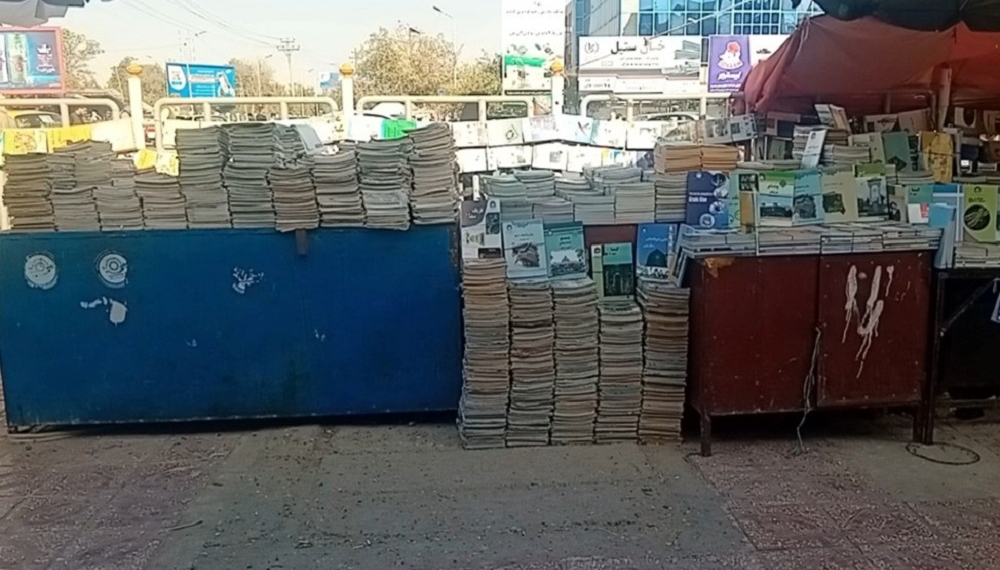By Ziba Balkhi
Two teenage girls dressed in all-black hijabs with black face masks are carrying heavy plastic bags stuffed with books. They walk towards Baihaqi bookstore in the center of Mazar-e-Sharif.
“Lala (brother), we have some books for sale. Would you like to buy them?” says the older of the two teens as she approaches the book carts.
Baihaqi bookstore buys second-hand books at a cheap price. The shop owner agrees after a brief conversation to buy the books for between 15 to 30 afghanis each.
Shila* and Shamila* are sisters, aged 14 and 16 respectively, who were school students before the Taliban returned to power in Afghanistan in 2021. They’re selling their schoolbooks as they no longer need them since the Taliban banned education for girls.
The older sister Shamila says selling the books is a tough blow, but the money will help their mother.
“Only God knows how many tears I’ve shed because selling my books is like selling my dreams,” she says.
“It’s very difficult for me and my sister. We were talented students at school, but the schools did not open. It’s been more than a year that we have no luck [in the schools reopening]. At the same time, I will give the money we’ve earned to my mother so she can buy something that we need.”
The Taliban closed girls’ schools above grade six immediately upon taking power in August 2021. However, many schools in Balkh province and northern Afghanistan managed to stay open until they were forced to close about a year later.
While the Taliban has insisted it’s a temporary measure, all its moves on education since then only deny girls and women an education. Universities have been closed to females, educational classes for girls have been shut down, and girls who study privately have been forbidden from sitting university entrance exam tests.
Shamila and her sister have almost given up hope of going to school. “If they opened the school, they would only open it for a while. They took entrance exams, but they did not include girls. Since they announced the entrance exam results, I no longer believe that they will reopen schools.”
The two sisters sold about 24 volumes of their textbooks.
“They bought books such as English and math at a better price of 30 afghanis, but they bought books like history and geography for 15-20 afghanis,” Shamila says.
Shamila says the real reason underpinning them selling their books is not despair over schools reopening, but economic need. Their father is a painter, but Shamila says the job market is sluggish. The day they sold their books, their father had not been able to work for three days, and there was almost nothing to eat in the house.
“It is better to sell the books so that we can find some money so that at least one day of our life can be spent with him and another person can use these books,” Shamila says of her family of seven – five children and their parents.
But the despair of the schools being closed is never far from their minds.
“It was a bad day in our lives,” Shamila says of the day the schools in Balkh were closed. “That day all the schoolgirls were crying because we were not supposed to come to school anymore. Just because we are girls. After that day, I still had hope. I left my school uniforms neatly ironed in our closet until one day school reopens and I wear it again. But that wish remained just a wish.”
The UN Women recently said in a report that Afghan women are facing increasing mental health problems due to the restrictions of the Taliban.
According to the report, around 69 percent of Afghan women admit to feeling anxious, isolated, and depressed.
*Pseudonyms have been used for security reasons








